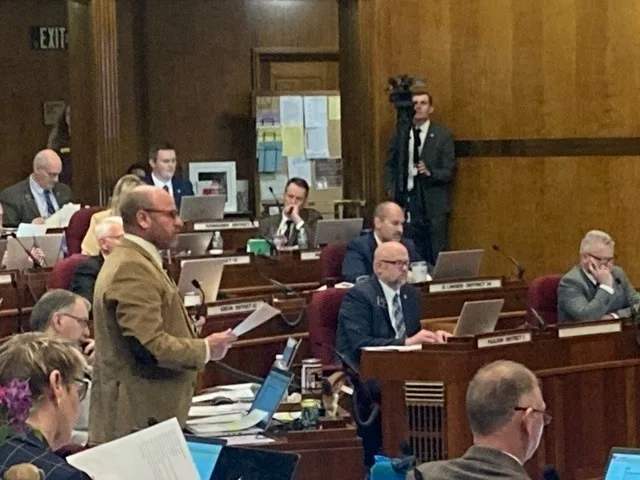

BISMARCK – Two resolutions that passed overwhelmingly in the North Dakota State House of Representatives suffered crushing rejection in the Senate Monday.
House Concurrent Resolution 3019, which sought to repeal and replace a term limits initiated measure approved by state voters in the November 2022 general election, failed by a 5-41 vote. HCR 3019 had passed the House 63-29. Had the vote on the resolution been successful, HCR3019 would have been placed on a statewide ballot.
Sen. Jeff Magrum, R-Dis. 8, Hazelton, voiced his opposition to HCR3019, telling fellow senators that the initiated measure approved by over 150,000 voters is “not to be changed by this body.”
Sen. Judy Estenson, R-Dis. 15, Warwick, voiced support for the resolution, saying, “I don’t think this bill is insulting the intelligence of the electorate” and that the existing initiated measure won’t be repealed “unless the electorate intelligently makes that decision.”
A common theme among proponents of the resolution has been that voters did not know or didn’t understand the measure they approved. That opinion was shared by Sen. Dick Dever, R-Dis. 32, Bismarck.
“I’m not sure that the people of North Dakota really knew that they were voting for California term limits.....states with full-time legislatures and staff,” said Dever.
On the Senate floor Monday Sen. Kyle Davison, D-Dis. 10, Fargo, thought proponents of the resolution were acting hastily and too much in their own interests.
“I think we should give the term limits measure a session or two,” remarked Davison. “I think it’s a bit self-serving. We’re acting too quick.”
Sen. David Clemens, R-Dis. 16, West Fargo, countered that he was against term limits, including HCR3019 that would have extended term limits over what voters had already approved.
“If the people feel they made a mistake, let them reverse the initiated measure,” said Clemens. “This resolution will only confuse the electorate as to what we really want to do.”
Following the vote that killed HCR3019 there was a motion on floor to move HCR3020 to the top of the agenda. That resolution proposed extending legislative sessions from the current 80 days to 100 days.
HCR3020 earlier passed the House 74-18 but did not garner a single vote in the Senate, failing 0-46.